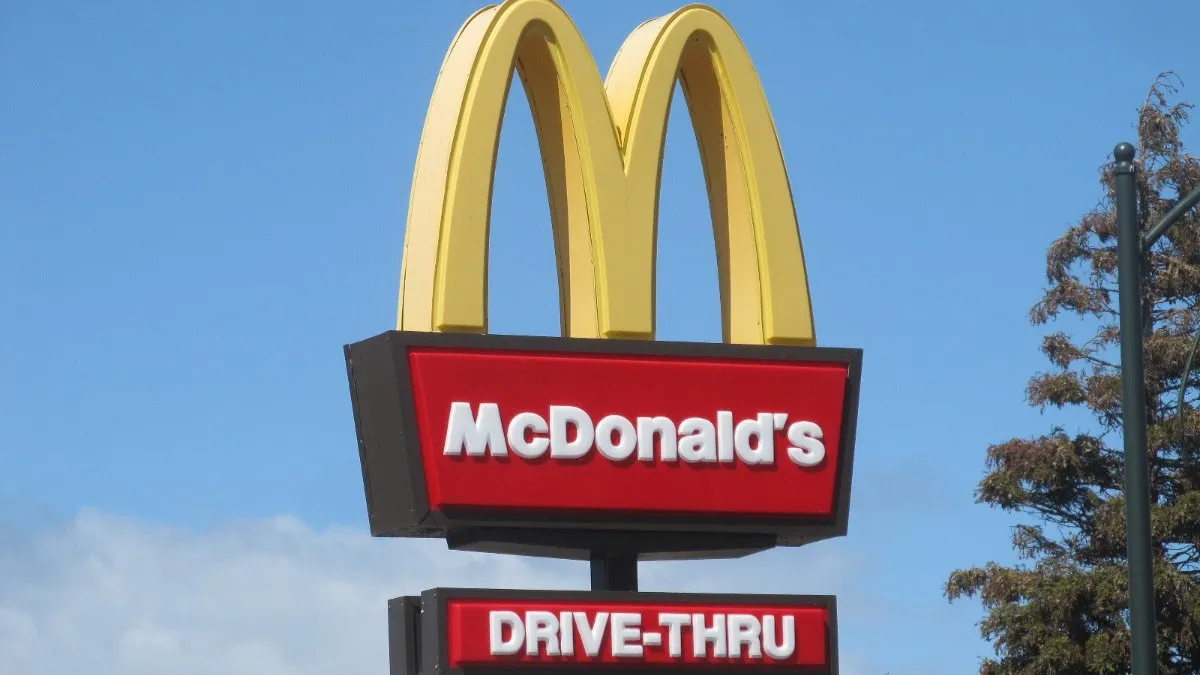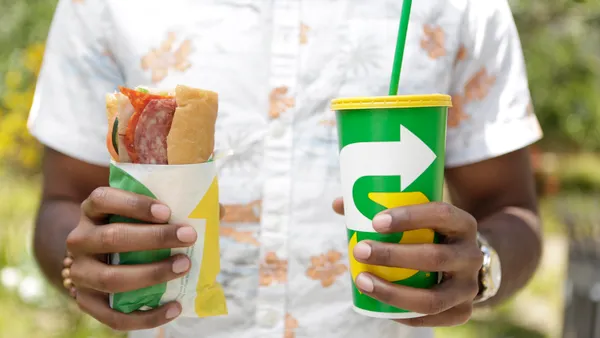Dive Brief:
- Two senior McDonald's executives have accused the chain of racial discrimination in a federal lawsuit filed in Illinois on Tuesday, according to Restaurant Business. The lawsuit claims the company under former CEO Steve Easterbrook, current CEO Chris Kempczinski and Charlie Strong, a zone president, pushed out African Americans from senior leadership and strong-armed certain franchisees, many of whom were African American operators, to get them to leave the system.
- The lawsuit also accuses the company of abandoning its marketing efforts toward African American consumers, which led to declines in black customers, and claims the percentage of African American customers dropped to 14% last year from its historical rate of 20%.
- "In the U.S. in particular, 45% of corporate officers are people of color and all U.S. field vice presidents are people of color," McDonald's said in a statement. "While we disagree with characterizations in the complaint, we are currently reviewing it and will respond accordingly."
Dive Insight:
The allegations of McDonald's abandoning its African American marketing efforts are inconsistent with its 2019 launch of Black & Positively Golden, its largest African American campaign in 16 years. And though McDonald's is facing a traffic problem, it's hard to gauge if what's alleged in this lawsuit is the problem, since most of the industry is dealing with traffic erosion.
Still, it's hard to ignore the language in this lawsuit. The suit claims McDonald's carried out "ruthless humiliation and expulsion of highly qualified African Americans," and states the company "declared war against the African American community." The plaintiffs, Vicki Guster-Hines and Domineca Neal, who work out of the company's Dallas office, according to their LinkedIn profiles, called their work environment "hostile and abusive," citing threats, derogatory racial comments and obstacles to advancement for African Americans, according to the Chicago Tribune.
Both executives said they were demoted in 2018 amid a broader corporate restructuring effort led by Easterbrook, the Tribune reports.
From a high-level perspective, these allegations are inconsistent with McDonald's overall reputation for being an attractive company for diversity. In 2018, for example, Black Enterprise named the company one of its 50 Best Companies for Diversity. Companies chosen for this list "have created measurable pathways to ensure African American representation among their workforce, senior management team, board of directors and pool of suppliers," according to the publication.
But this lawsuit also doesn't exist in a vacuum. In early December, Business Insider reported that the number of black franchisees declined from 304 in 2008 to 222 in 2017 and now make up less than 200 of the company's 1,700 franchisees. The story also reported that the average cash flow of black franchisees is significantly lower than its white counterparts, and that the gap has grown. In 2012, the cash flow disparity between black and white franchisees was less than $24,600 and in 2017, it was about $60,600.
This lawsuit is the latest hurdle Kempczinski has to face in just over two months in the CEO role. He assumed that position in November after Easterbrook was fired after over a consensual relationship with an employee. Shortly after, a class-action suit was filed against McDonald's for failing to address the "systemic problem" of sexual harassment in its 14,000 restaurants across the country. Later that month, another suit was filed against McDonald's claiming it failed to address violence at its restaurants.













